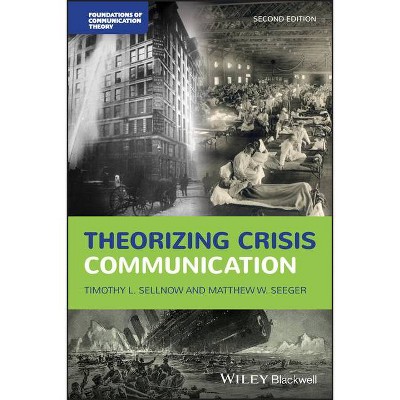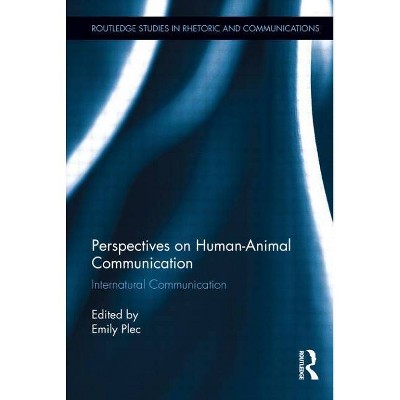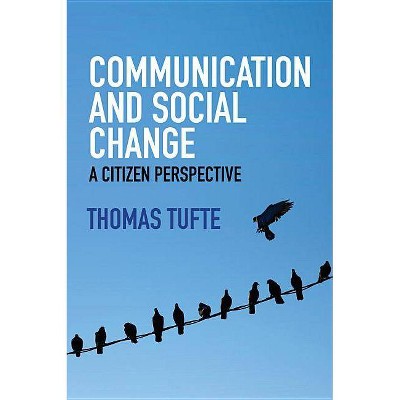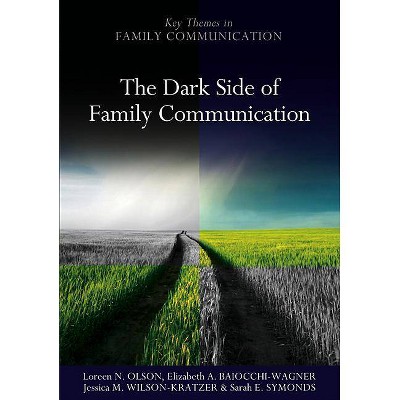The Work and Workings of Human Communication - (Foundations of Communication Theory) by Robert E Sanders (Paperback)

Similar Products
Products of same category from the store
AllProduct info
<p/><br></br><p><b> About the Book </b></p></br></br>"This book interweaves two main topics. One topic is the work and workings of human communication that make it a fit subject for scientific inquiry within an independent discipline, the Communication discipline. The other topic is the history, current agendas, and possible future interests of the social science side of our discipline. The book concludes with attention to how social science inquiry goes about being scientific, and then how our discipline does, when our subject matter is the actions of a self-driving, self-regulating being, an intelligent being with agency. It complicates matters that we social scientists are ourselves beings of the kind we study, making the achievement of scientific detachment a particularly thorny matter. This book assumes that such detachment is possible; probably not by individuals at a time, but at least by scientific communities over time. The book was written to socialize and professionalize graduate students in introductory, gateway Communication courses who are headed for a career on the social science side of the Communication discipline-whether a career as a researcher or theorist, or (along with students on other side(s) of the discipline) scholar, teacher, trainer, or professional communicator. The book can be used as the primary text in such courses, optionally supplemented by primary readings on selected topics; or it can be used as a supplement to more traditional textbooks. In addition, the book's treatment of the workings and work of human communication, and how the Communication discipline has undertaken to examine those, can support the interests of advanced undergraduate students who have elected to concentrate their studies on communication"--<p/><br></br><p><b> Book Synopsis </b></p></br></br><p><b>Discover</b><b> the fundamentals of human communication with this comprehensive and insightful resource</b> </p> <p>Written in four sections, <i>The Work and Workings of Human Communication</i> identifies the underlying fundamentals that make our communication distinctively human. These fundamentals are the common ground that tie together the many topics and subject matters covered by the study and discipline of communication. They are also the basis of the unique contribution of the communication discipline to the social sciences. </p> <p>Professor, researcher and theorist Robert E. Sanders starts by focusing on what is unique about human communication and moves on to an examination of the complexities of scientific inquiry in the social sciences in general and in the communication discipline specifically. At the heart of the matter is the fact that humans are thinking beings who can make choices and therefore are not entirely predictable. This points towards new topics and questions that are likely to arise as the discipline evolves. </p> <p>Sanders' approach leads to recognition of the fact that communication is at the center of how humans build our ways of life and participate together. By focusing on the underlying fundamentals that give rise to the discipline's topics and subject areas, <i>The Work and Workings of Human Communication</i> encourages students to engage in independent thought about what they want to contribute by: </p> <ul> Emphasizing the importance of communication in creating, sustaining or changing--and participating in--our ways of life on an interpersonal level and on a societal level </li> Recognizing that human communication is inherently collaborative; people affect situations by interacting <i>with </i>others, not acting <i>on </i>others </li> Explaining the history, current agendas and possible future of the social science side of the Communication discipline </li> </ul> <p>A perfect resource for new graduate students in introductory communication courses who have an interest in the social science side of the discipline, <i>The Work and Workings of Human Communication </i>is also highly valuable for undergraduate communication and liberal arts students who don't possess a background in the discipline. </p> <p> </p><p/><br></br><p><b> About the Author </b></p></br></br><p><b>Robert E. Sanders, Ph.D.</b> in Communication from the University of Iowa, has focused his research and theoretical work on details of the way people communicate in social interactions to influence others as a microcosm of the work and workings of human communication, and the underlying communicative competence that supports communicating strategically. He wrote the book <i>Cognitive Foundations of Calculated Speech</i>, co-edited <i>Handbook of Language and Social Interaction</i>, and has authored numerous journal articles and book chapters on language, social interaction, and communicative competence.</p>
Price History
Price Archive shows prices from various stores, lets you see history and find the cheapest. There is no actual sale on the website. For all support, inquiry and suggestion messagescommunication@pricearchive.us




















